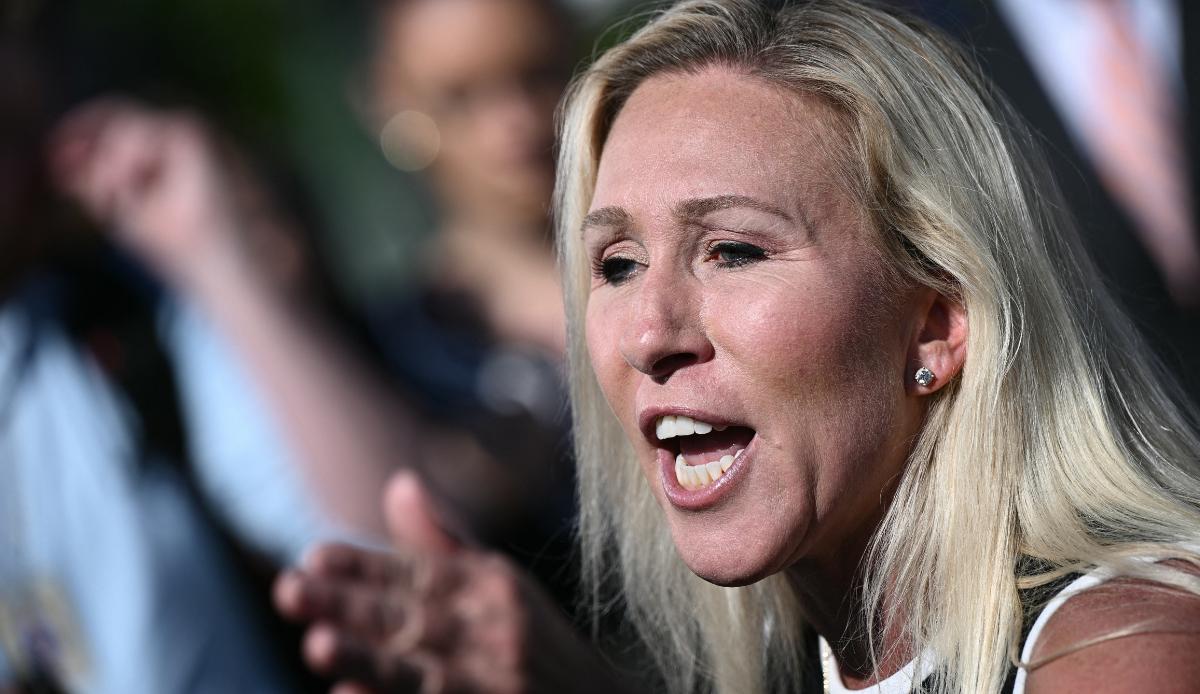
Representative Marjorie Taylor Greene, a political newcomer, revealed Wednesday her intention to force the departure of Republican Speaker of the House Mike Johnson for his endorsement of more aid to Ukraine.
Greene, a contentious individual well-known for her steadfast devotion to the late President Donald Trump, called Johnson's position a "betrayal" and promised to present a resolution to remove him from office the following week.
At a news briefing, Greene declared: "Mike Johnson fully joined the disgusting business model of Washington DC to fund forever wars."
"So next week, I will call this motion to vacate," she added.
Johnson replied by criticizing Greene's motives in a statement and calling them harmful to the Republican Conference, the organization, and the nation at large.
According to the House of Representatives rules, a single member may call for a vote to remove the speaker, a power that Greene looks ready to exercise in her bid to replace Johnson.
Her efforts are unlikely to succeed, though, as Democrats have indicated they want to support Johnson – albeit in an unconventional manner.
Greene declared ahead of the forthcoming vote: "I can't wait to see Democrats go out and support a Republican speaker."
Tensions within Congress have arisen because of the debate over U.S. support for Ukraine, especially among far-right Republicans who want to reduce aid to the war-torn country in its struggle with Russia.
After much consideration and pressure from Democrats and U.S. allies, Johnson decided to support a fresh assistance package for Ukraine, which infuriated some members of his party's radical right-wing element.
This event reminds me of one that happened a few months ago when former Republican House Speaker Kevin McCarthy was forced to resign because of accusations made by a tiny group of Trump supporters he had made a "secret deal" with Democrats over Ukraine.
Johnson's ouster seems improbable despite the unrest among the GOP ranks, highlighting the party's continued division over internal leadership and foreign policy issues.
Source: AFP